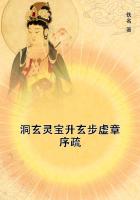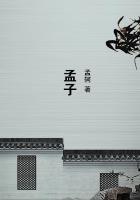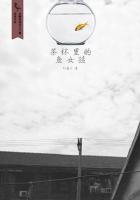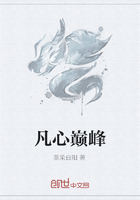Milk, however, is a stock of materials which essentially consists of savings from the food-stuffs supplied to the mother. And these savings are in such a physical and chemical condition that the organism of the child can easily convert them into work-stuff. That is to say, by borrowing directly from the vital capital of the mother, indirectly from the store in the natural bodies accessible to her, it can make good the loss of its own. The operation of borrowing, however, involves further work; that is, the labour of sucking, which is a mechanical operation of much the same nature as breathing. The child thus pays for the capital it borrows in labour; but as the value in work-stuff of the milk obtained is very far greater than the value of that labour, estimated by the consumption of work-stuff it involves, the operation yields a large profit to the infant. The overplus of food-stuff suffices to increase the child's capital of work-stuff; and to supply not only the materials for the enlargement of the "buildings and machinery" which is expressed by the child's growth, but also the energy required to put all these materials together, and to carry them to their proper places. Thus, throughout the years of infancy, and so long thereafter as the youth or man is not thrown upon his own resources, he lives by consuming the vital capital provided by others.
To use a terminology which is more common than appropriate, whatever work he performs (and he does a good deal, if only in mere locomotion) is unproductive.
Let us now suppose the child come to man's estate in the condition of a wandering savage, dependent for his food upon what he can pick up or catch, after the fashion of the Australian aborigines.
It is plain that the place of mother, as the supplier of vital capital, is now taken by the fruits, seeds, and roots of plants and by various kinds of animals. It is they alone which contain stocks of those substances which can be converted within the man's organism into work-stuff; and of the other matters, except air and water, required to supply the constant consumption of his capital and to keep his organic machinery going. In no way does the savage contribute to the production of these substances. Whatever labour he bestows upon such vegetable and animal bodies, on the contrary, is devoted to their destruction; and it is a mere matter of accident whether a little labour yields him a great deal--as in the case, for example, of a stranded whale; or whether much labour yields next to nothing--as in times of long-continued drought. The savage, like the child, borrows the capital he needs, and, at any rate, intentionally, does nothing towards repayment; it would plainly be an improper use of the word "produce" to say that his labour in hunting for the roots, or the fruits, or the eggs, or the grubs and snakes, which he finds and eats, "pro duces" or contributes to "produce" them. The same thing is true of more advanced tribes, who are still merely hunters, such as the Esquimaux. They may expend more labour and skill; but it is spent in destruction.
When we pass from these to men who lead a purely pastoral life, like the South American Gauchos, or some Asiatic nomads, there is an important change. Let us suppose the owner of a flock of sheep to live on the milk, cheese, and flesh which they yield. It is obvious that the flock stands to him in the economic relation of the mother to the child, inasmuch as it supplies him with food-stuffs competent to make good the daily and hourly losses of his capital of workstuff. If we imagine our sheep-owner to have access to extensive pastures and to be troubled neither by predacious animals nor by rival shepherds, the performance of his pastoral functions will hardly involve the expenditure of any more labour than is needful to provide him with the exercise required to maintain health. And this is true, even if we take into account the trouble originally devoted to the domestication of the sheep. It surely would be a most singular pretension for the shepherd to talk of the flock as the "produce" of his labour in any but a very limited sense. In truth, his labour would have been a mere accessory of production of very little consequence. Under the circumstances supposed, a ram and some ewes, left to themselves for a few years, would probably generate as large a flock; and the superadded labour of the shepherd would have little more effect upon their production than upon that of the blackberries on the bushes about the pastures. For the most part the increment would be thoroughly unearned; and, if it is a rule of absolute political ethics that owners have no claim upon "betterment" brought about independently of their own labour, then the shepherd would have no claim to at least nine-tenths of the increase of the flock.
But if the shepherd has no real claim to the title of "producer," who has? Are the rams and ewes the true "producers"? Certainly their title is better if, borrowing from the old terminology of chemistry, they only claim to be regarded as the "proximate principles" of production. And yet, if strict justice is to be dispensed, even they are to be regarded rather as collectors and distributors than as "producers." For all that they really do is to collect, slightly modify, and render easily accessible, the vital capital which already exists in the green herbs on which they feed, but in such a form as to be practically out of the reach of man.
Thus, from an economic point of view, the sheep are more comparable to confectioners than to producers. The usefulness of biscuit lies in the raw flour of which it is made; but raw flour does not answer as an article of human diet, and biscuit does. So the usefulness of mutton lies mainly in certain chemical compounds which it contains: the sheep gets them out of grass; we cannot live on grass, but we can on mutton.


